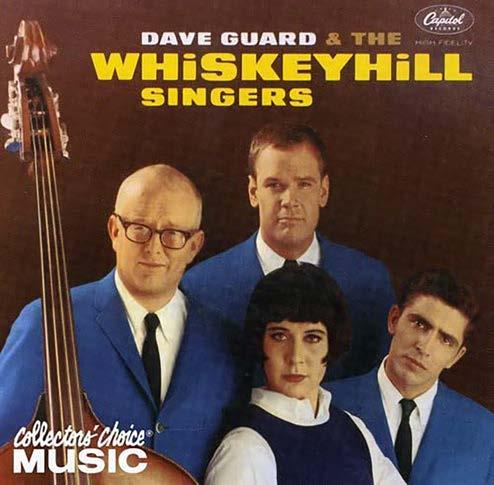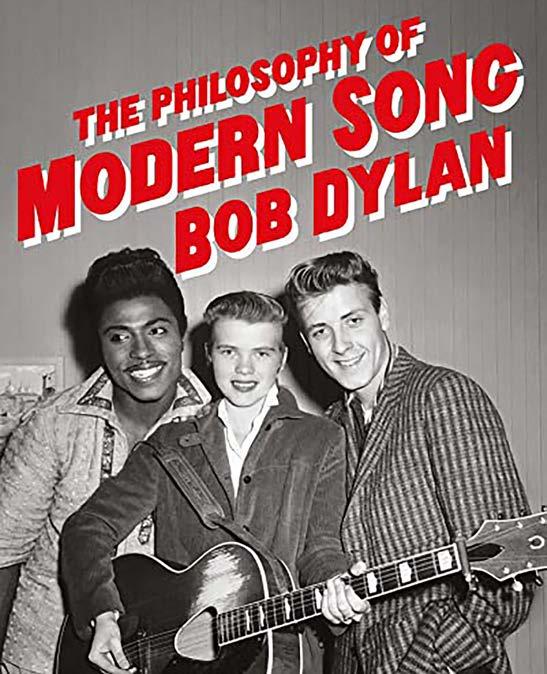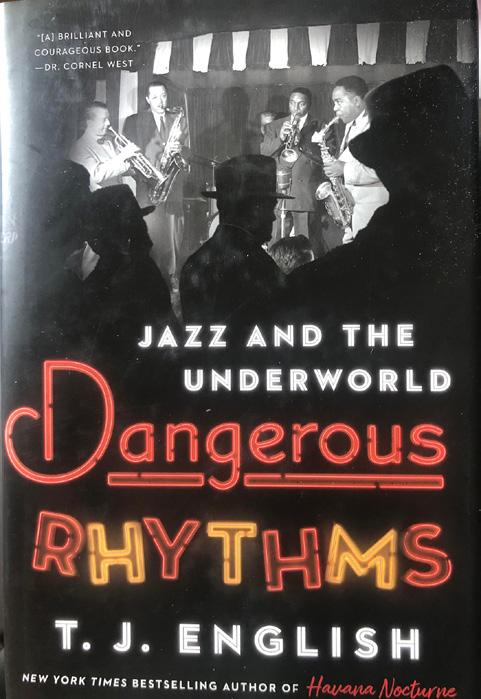
5 minute read
Jazz 2: By Des Cowley
ALBUMS: Jazz 2
BY DES COWLEY
Advertisement
RAFAEL KARLEN EQUALLY TRUE Earshift Music, EAR059, CD & digital release
Sydney-based saxophonist Rafael Karlen relishes working in a range of contexts, from large ensembles, through to string quartets, and stripped-down trios. His new album – featuring pianist Matt McMahon, bassist Brett Hirst, drummer Simon Barker and singer Kristin Berardi – builds on the music heard on his previous outing with the Berardi/Foran/ Karlen trio, a music foregrounded in delicate voicings, sheer as gossamer. Opener ‘Again, as Always’ sets the scene, with McMahon’s spare piano notes coalescing into a richly emotive refrain, coaxing Berardi’s vocals, which glide ghost-like above the music. Karlen’s sax lends solid support, his mournful tone contributing a series of meditative flourishes, elevating mood over fireworks. Karlen’s compositions are, to a tee, reflective, slow-moving, and spacious, each instrument starkly present. His pieces develop organically, the product of deep listening and closely-knit communication. On occasion, we can discern an echo of Joni Mitchell in her Jaco-phase, or the free-floating spirit of trumpeter Kenny’s Wheeler’s Azimuth trio. Which is to say, this music weaves a spell, pensive and introspective, its unhurried tempos gentle as a daydream. Key to this music is McMahon’s piano, which conveys a forward momentum, minimal and fine-spun, a pulse that allows Karlen’s sax and Berardi’s vocals to roam free. The album’s centrepiece, the four-part suite ‘Arrival and Prospects’, originally commissioned for the Brisbane International Jazz Festival, is the sole piece to feature lyrics, a wistful song whose melody is tinged with nostalgia and hope. Throughout its generous sixty-plus minute runtime, Equally True unabashedly forgoes the flashy, steadfastly opening its heart to beauty.
JEREMY ROSE & THE EARSHIFT ORCHESTRA DISRUPTION! THE VOICE OF DRUMS Earshift Music, EAR067, Vinyl, CD, & digital release
This album may be Sydney saxophonist Jeremy Rose’s most ambitious to date. Scored for drummers Simon Barker and Chloe Kim, and an improvising sextet, it is a wild percussive ride from beginning to end. Rose’s project draws inspiration from the traditional use of drums, not just as an instrument for communication and ritual, but also as a voice of protest. Given the world we live in – the past few years alone have brought war, ecological disaster, a global pandemic, civil unrest, and Black Lives Matter – Rose’s intent is clear: to insert his musical voice into a growing chorus demanding action. In this resolve, he is mining similar terrain to Max Roach’s masterpiece We Insist! Freedom Now Suite. Throughout, drums are front and centre, with Rose’s saxophone and Tom Avgenicos’s trumpet, wailing in unison, furnishing a support role for music’s propulsive energy. Rose’s bass clarinet inserts periodic brooding passages, serving as pauses for breath and reflection, while Novak Manojlovic’s Rhodes and Ben Carey’s synthesizer inject a flurry of sonic feed into the mix. Barker, of course, is one Australia’s finest drummers, his practice drawing inspiration from the traditions of Korean drumming. Kim, a young Korean-born drummer, studied under Barker, and together they demonstrate a synergy and telepathic interplay that defies reason. Meshing in tightly, they engage in extended passages of rhythmic conversation, a percussive call and response, brimming with respect and reciprocity. The eleven pieces heard on Disruption!, variably credited to Rose, Barker and Kim, give credence to the power of music to enact change.
HARRY MITCHELL ARCHETYPES
Independent, CD & digital release
Perth-based pianist Harry Mitchell once had the good fortune, as a nineteen-year-old, to play with Charlie Watts, when the Stones’ drummer dropped by Perth’s Ellington Jazz Club. Now in his twenties, Mitchell has been flaunting a punishing schedule, with some thirteen albums to his name since his self-titled debut in 2017. For this, his latest outing, he has teamed up with a stellar cast of Perth buddies: saxophonist Jamie Oehlers, trumpeter Ricki Malet, bassist Karl Florisson, and drummer Ben Vanderwal. With a strong ear for groove, Mitchell’s compositions conjure the hard bop sound of classic Blue Note recordings, as epitomized by the label’s more adventurous artists like Horace Silver, Andrew Hill, Wayne Shorter. Opener ‘Shaman’, with its punchy riff, breezy piano, and free-wheeling horns, highlights the album’s strengths: rich in shifting tempos, malleable grooves and moods, with a clear shine, and flouncing beat. ‘Anima’, by contrast, exhibits a gentle, dirge-like quality, muted and affecting. The eight-minute ‘Ruler’ is a standout, its haunting theme, full of longing, teasing from Oehlers one of his finest solos, dripping with lyrical warmth. Throughout, the playing of Oehlers and Malet is exemplary, but critical to Archetypes is the locked-in synergy of the rhythm section – piano, bass, drums – which appears to spin on a dime, enabling this music to constantly shift stride, embracing new directions. While Mitchell is not intent on breaking down fences, his album puts a modern twist on the classic hard bop and post-bop sound, catapulting it into the here and now.
PETER KNIGHT SHADOW PHASE
Room 40, RM4153, Vinyl & digital release
While this album features contributions from others – Tony Buck on percussion, Fia Fell on synthesizer, Rachael Kim on violin – it is best considered a solo project by acclaimed trumpeter Peter Knight, his first in a decade. During his tenyear stint as Artistic Director of the Australian Art Orchestra, a role he recently relinquished, Knight led the ensemble on a ten-year sonic adventure, exploring improvisation, minimalism, electronic and ambient music. Shadow Phase, a prolongation of that sonic journey, began life during Melbourne’s lockdowns, inspired by Knight’s regular walks with the late poet Ania Walwicz. Drawing sustenance from Walwicz’s practice of automatic writing, Knight began recording music daily, on a variety of instruments – trumpet, Revox reelto-reel, laptop, synths, harmonium – gradually stitching together the music heard on the album. Its five tracks, evocatively titled, are best listened to as a continuous suite, fashioned out of rudimentary building blocks: sound and silence, the slow in-and-out of breathing, the rhythms of the body, lines and loops, the gradual opening out of possibilities during a time of restriction. The ten-minute opener ‘The Softened Shore’, with its nearimperceptible forward momentum, sets the mood, trumpet and synths awash over a gentle pulse, rarely rising above a murmur. ‘Cloud Phase’ introduces an electronic backdrop, over which synths are gracefully overlaid, generating a shimmering radiance, swelling with grandeur and hope. At the end of the first side, Walwicz’s voice can be heard, reminding us that this album was born from a time of loss and darkness, its trajectory seeking – and finding – light.










